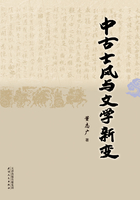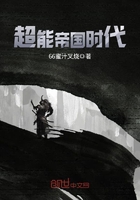With some difficulty the two made their way to the right-hand corner seats of block C, for every seat in the reserved block was taken. The places which George wanted for my father and for himself were already occupied by two young men of about eighteen and nineteen, both of them well-grown, and of prepossessing appearance. My father saw by the truncheons they carried that they were special constables, but he took no notice of this, for there were many others scattered about the crowd. George whispered a few words to one of them, and to my father's surprise they both gave up their seats, which appear on the plan as (k).
It afterwards transpired that these two young men were George's brothers, who by his desire had taken the seats some hours ago, for it was here that George had determined to place himself and my father if he could find him. He chose these places because they would be near enough to let his mother (who was at i, in the middle of the front row of block E, to the left of the pulpit) see my father without being so near as to embarrass him; he could also see and be seen by Hanky, and hear every word of his sermon; but perhaps his chief reason had been the fact that they were not far from the side-door at the upper end of the right-hand aisle, while there was no barrier to interrupt rapid egress should this prove necessary.
It was now high time that they should sit down, which they accordingly did. George sat at the end of the bench, and thus had my father on his left. My father was rather uncomfortable at seeing the young men whom they had turned out, standing against a column close by, but George said that this was how it was to be, and there was nothing to be done but to submit. The young men seemed quite happy, which puzzled my father, who of course had no idea that their action was preconcerted.
Panky was in the first row of block F, so that my father could not see his face except sometimes when he turned round. He was sitting on the Mayor's right hand, while Dr. Downie was on his left; he looked at my father once or twice in a puzzled way, as though he ought to have known him, but my father did not think he recognised him. Hanky was still with President Gurgoyle and others in the robing-room, N; Yram had already taken her seat: my father knew her in a moment, though he pretended not to do so when George pointed her out to him. Their eyes met for a second; Yram turned hers quickly away, and my father could not see a trace of recognition in her face. At no time during the whole ceremony did he catch her looking at him again.
"Why, you stupid man," she said to him later on in the day with a quick, kindly smile, "I was looking at you all the time. As soon as the President or Hanky began to talk about you I knew you would stare at him, and then I could look. As soon as they left off talking about you I knew you would be looking at me, unless you went to sleep--and as I did not know which you might be doing, Iwaited till they began to talk about you again."My father had hardly taken note of his surroundings when the choir began singing, accompanied by a few feeble flutes and lutes, or whatever the name of the instrument should be, but with no violins, for he knew nothing of the violin, and had not been able to teach the Erewhonians anything about it. The voices were all in unison, and the tune they sang was one which my father had taught Yram to sing; but he could not catch the words.
As soon as the singing began, a procession, headed by the venerable Dr. Gurgoyle, President of the Musical Banks of the province, began to issue from the robing-room, and move towards the middle of the apse. The President was sumptuously dressed, but he wore no mitre, nor anything to suggest an English or European Bishop. The Vice-President, Head Manager, Vice-Manager, and some Cashiers of the Bank, now ranged themselves on either side of him, and formed an impressive group as they stood, gorgeously arrayed, at the top of the steps leading from the apse to the nave. Here they waited till the singers left off singing.
When the litany, or hymn, or whatever it should be called, was over, the Head Manager left the President's side and came down to the lectern in the nave, where he announced himself as about to read some passages from the Sunchild's Sayings. Perhaps because it was the first day of the year according to their new calendar, the reading began with the first chapter, the whole of which was read.
My father told me that he quite well remembered having said the last verse, which he still held as true; hardly a word of the rest was ever spoken by him, though he recognised his own influence in almost all of it. The reader paused, with good effect, for about five seconds between each paragraph, and read slowly and very clearly. The chapter was as follows:-These are the words of the Sunchild about God and man. He said -1. God is the baseless basis of all thoughts, things, and deeds.















